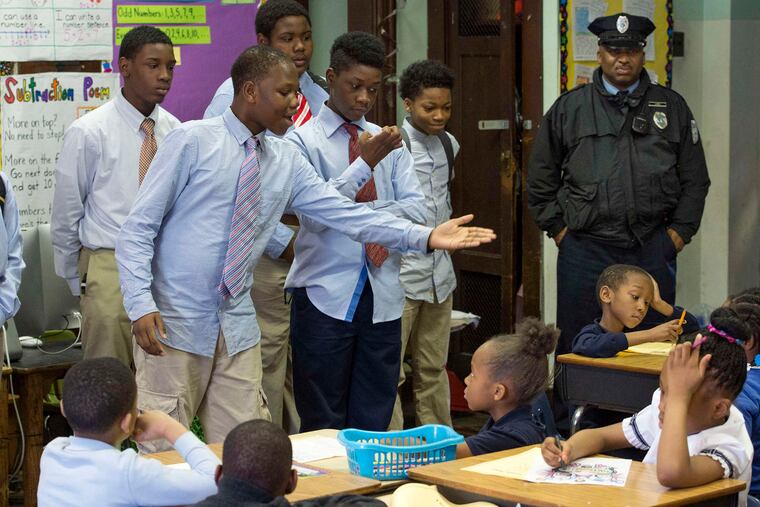As debate over school police continues, officers need best practices | Opinion
Eliminating school resource officers would deprive schools of a truly valuable resource for students, educators, administrators, and families.

After the school shooting in Parkland, Fla., many people, including President Donald Trump, called for additional police officers in every school. But in the wake of nationwide civil unrest following the death of George Floyd at the hands of Minneapolis police officers, the issue of police in schools has become a larger debate, with many people wondering whether officers belong in educational settings.
As the executive director of a national organization for school police, I believe that — despite the fact that many communities are justifiably calling for big changes in law enforcement — eliminating school resource officer (SRO) programs would be an overreaction. Doing so would deprive schools of a truly valuable resource for students, educators, administrators, and families.
SROs are career law enforcement officers with sworn authority who are deployed by employing police departments or agencies in community-oriented policing assignments to work in collaboration with schools. Carefully selected, specially trained SROs provide many benefits, including preventing on-campus violence through appropriate interventions before violence occurs, mitigating unexpected violent incidents through immediate response, and reducing the need for schools to call 911 in some emergencies. SROs can also increase the likelihood that students (particularly those with mental health issues) get the help they need from social service and health-care systems.
If your community is not experiencing these benefits, then that’s a problem that must be addressed.
Rather than eliminate SRO programs where issues exist, communities should implement needed reform, including replacing officers who are not suited to school work with more carefully selected personnel and improving training of all SROs.
Officers considered for SRO positions should be the “cream of the crop.” No agency should put officers in schools to get them off the streets (either because of issues with their work or because of declining capabilities), as punishment, or without the officers’ strong desire to work in schools.
SROs should be chosen carefully, and each one should have at least three years of street experience, demonstrated abilities to work with youth (e.g., through volunteering in youth athletic programs), clean disciplinary records, and excellent community relations skills.
By its very nature, school policing must be different from street patrol. Specialized training, therefore, is as essential to SROs as it is to other law enforcement specialties, such as hostage negotiation or SWAT. No community should assign a police officer to a school without first providing training that includes: understanding adolescent brain development and normal childhood behaviors; recognizing and overcoming implicit bias, de-escalation, including finding and using alternatives to juvenile justice system referrals; special education, including individualized education plans and their requirements; and recognizing and responding appropriately to signs of mental illness and trauma.
These expectations and responsibilities must be written down, so that police agencies and school systems have codified guidelines for the relationship. For example, both parties must agree that schools will not involve SROs in behavioral issues that educators would handle on their own in the absence of police. School systems must train teachers and administrators on appropriate roles of SROs and correct those personnel if they summon SROs inappropriately.
Instead of discontinuing SRO programs, communities — including those with significant policing issues — should first strive to reform problematic situations for the safety and benefit of students, educators, administrators, and families.
Mo Canady is the executive director of the National Association of School Resource Officers.